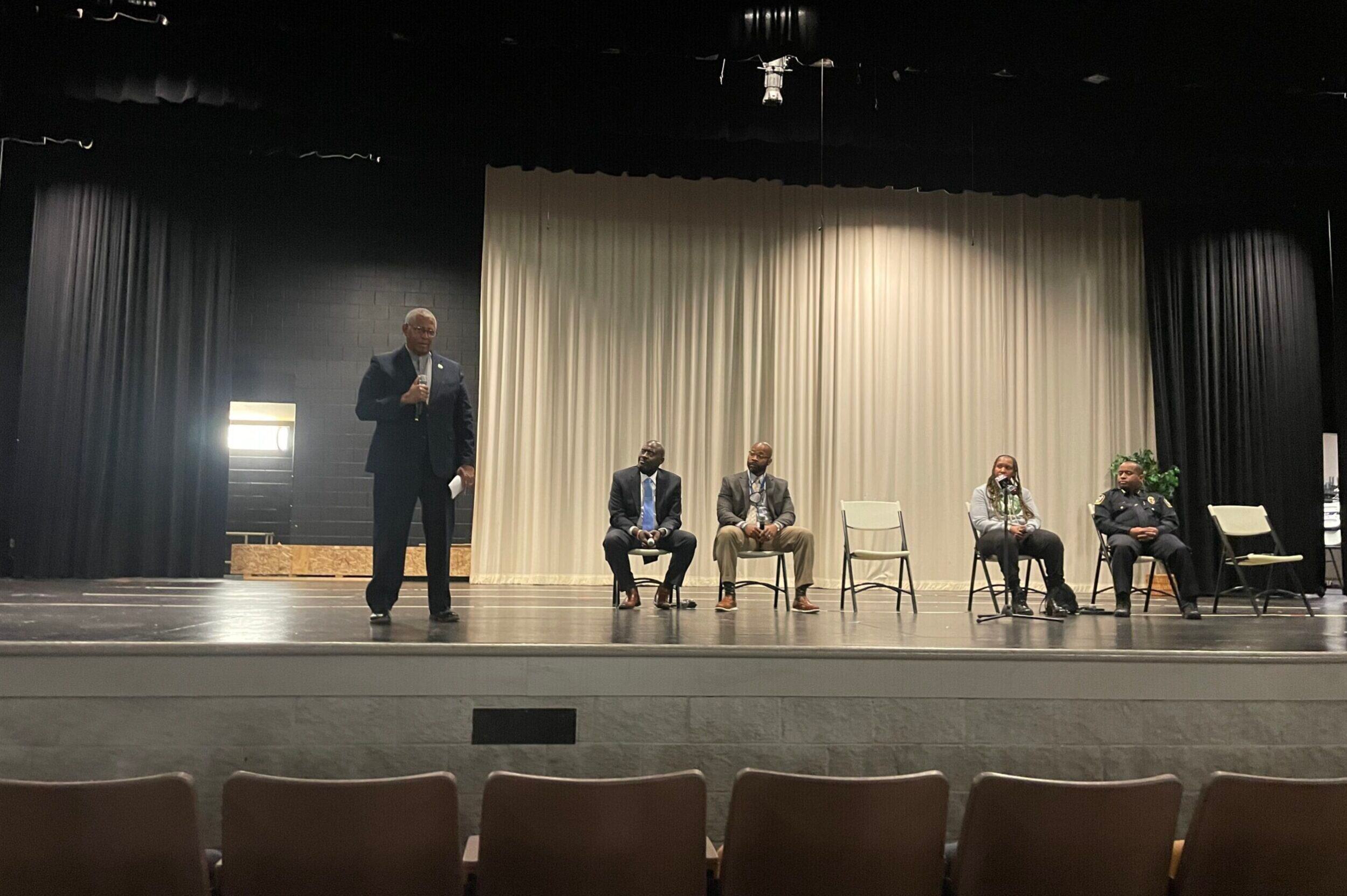SELMA – Wednesday evening, local leaders and school officials gathered at Selma High School (SHS) to speak with parents and others about community issues after the death of an SHS student.
Last week, one 16-year-old male student of SHS was pronounced dead at the school. Three other students were sent to the hospital that same day.
While Selma Mayor James Perkins, Jr. issued a statement the next day warning against "jumping to conclusions or making unproven statements," Dallas County District Attorney Michael Jackson indicated that the student's death was likely related to fentanyl.
The event did not provide any updates on the cause of the student's death, but speakers addressed what they consider to be more systemic problems with students in the community.
Mayor Perkins opened the event with a prayer, followed by Dr. Zickeyous M. Byrd, the superintendent of Selma City Schools, taking the stage to address the crowd of around 40 people.
The event also featured the Selma Chief of Police Kenta Fulford, SHS Principal Stoney Pritchett, Jerria Martin, Director of Drug-Free Communities of Dallas County, and Dallas County District Court Judge Vernetta R. Perkins, who arrived later in the evening due to court restrictions.
"Tonight's meeting is for us to come together as a community to save our community," Byrd said. "We have to realize, of course, that we are tasked with a duty to make sure we are training up the next generation so they can actually replace us, so they can actually keep Selma going."
Byrd and the other speakers opined on the programs within schools intended to keep students engaged after class and on weekends to curtail bad influences outside of school. Furthermore, the speakers pleaded with those present that school, in-school programs and after-school programs could not have their desired effect without the family's and community's participation and assistance.
"We are here to share on tonight all of the things that we're doing to try to address the issues that are going on in our community, but we also realize that we have some gaps that we have to fill in," Byrd continued. "We have some large gaps that we have to fill in, and it starts with the community. …What we are asking for on tonight, we are asking for our community, our community leaders, to come together and let's actually fill in the gaps. We are asking for our churches to come together, and let's fill in the gaps."
A common theme among the speakers was recognizing the systemic issues of drugs, violence and other crimes that have ravaged the area. The speakers also suggested the problems had escalated recently, especially in the wake of the COVID-19 pandemic.
Pritchett, the principal of SHS, spoke about his grief about losing a student, also stressing the strenuous efforts he and his staff go through monitoring students' bags and looking for contraband.
Both Pritchett and Byrd emphasized the need for involvement from parents, pointing to the overworked nature of school staff in attempting to minimize the dangers to students in the school.
"Oftentimes, my day is filled with safety measures," Pritchett said. "I get in around 6:45, and I'm checking bookbags, my staff is checking book bags, and we're checking kids in. But we're not trained professionally to check for weapons, fentanyl, drugs and those things, but we find ourselves doing that all day long. …Schools were not designed for us to handle social and emotional learning; it wasn't designed for that. Our job is designed to educate children. And like [Byrd] said, my teachers are burned out; they're frustrated, they're tired, and it's just taken a toll on them."
"Parents, you've got to do more," Perkins said. "Pastors, we've got to do more. Teachers, Educators, I know you're tired, but we've still got to do more. There's so much more that has to be done because the demands are so much greater now than they used to be."
In a final impassioned plea to those gathered, Perkins addressed what he considered a systemic issue of abuse and sexual exploitation that pervades the community.
"Our babies [are] in trouble," Perkins concluded. "Our children [are] in trouble. … There are some things we do in our culture that really should not be acceptable to us. … We [have] got to stop – and if I offend you, I'm not apologizing for it – we [have] got to stop molesting our babies. A lot of our babies are struggling because they are being abused by grown folks, and it needs to stop; it needs to stop. A lot of our babies are torn apart, and families don't know how to deal with it because a lot of the molestation is incest. I'm just trying to keep it real; you can't do that to our babies and think they [are] going to be OK. They're not OK; they're not OK. And when we do that, the family is not OK. And when the family is broken, the community is broken. I'm only telling you because I love you; I care about you. We need to fix this in our culture. We should no longer accept this behavior."
To connect with the author of this story, or to comment, email craig.monger@1819news.com.
Don't miss out! Subscribe to our newsletter and get our top stories every weekday morning










